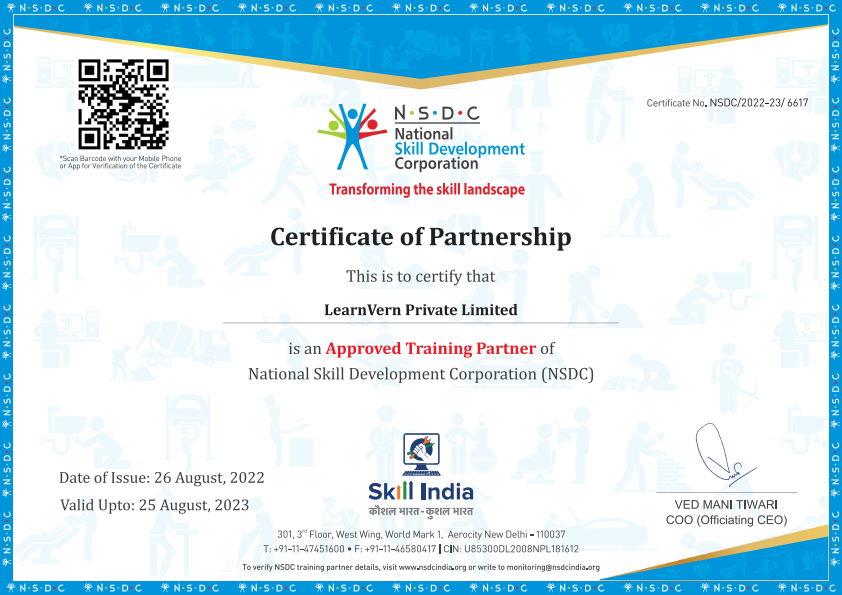

Introduction to C
Setting up C and First Program on C
Structure of C
Operators in C
Decision making and Flow Control
Working with User Defined Functions
Derived Datatypes
Typedef Function
File Handling in C
Preprocessors and Header Files
Type Casting
Error Solving in C
Recursive Functions
Variable Arguments in User Defined Functions
Memory Management
Command Line Arguments
C Programming Libraries
Running and Debugging Programs
Compilation and Execution
Macros and Linked List
C Programming Exercises
Course Summary
Interview Questions
Career Guideline

Yes, there is a Paid Certification included with this course. The course material is entirely free; however, certification in this course requires payment of ₹999.
The course is accessible on both web and mobile platforms.